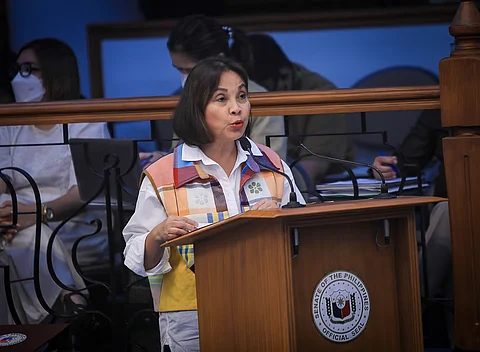
- NEWS
- the EDIT
- COMMENTARY
- BUSINESS
- LIFE
- SHOW
- ACTION
- GLOBAL GOALS
- SNAPS
- DYARYO TIRADA
- MORE

Senator Loren Legarda on Tuesday urged Congress to open the national budget process to greater public scrutiny and participation, stressing that transparency, citizen involvement, and results-based evaluation are essential to ensuring that government spending truly benefits the people.
Speaking in support of a concurrent resolution that would strengthen transparency and accountability measures in crafting the 2026 General Appropriations Act, Legarda said the reform must go beyond access to documents and include opening all stages of the process — particularly the bicameral conference committee — to public view.
“For too long, key stages of the national budget process, especially the bicameral conference committee deliberations, have taken place out of public view,” Legarda said. “Livestream access, the publication of a matrix comparing House and Senate versions, and the release of comprehensive minutes should be standard operating procedures.”
She noted that secrecy in the bicameral process fuels perceptions of last-minute, behind-closed-doors changes. “[This resolution] is a step forward, but it must be followed through with strategic reforms,” she said.
Legarda also pushed for the passage of the People’s Participation in the National Budget Process Act, which she co-authored with Senator Panfilo Lacson. The bill would institutionalize the role of civil society organizations (CSOs) in preparing and authorizing the budget, guarantee 30 percent representation from marginalized sectors, and ensure access to agency performance data.
“Transparency, however, must be matched with participation,” Legarda stressed. “These safeguards will give communities — especially those most affected by government spending — an active voice in how public funds are planned and allocated.”
The senator also emphasized the need for a results-based governance system that measures the real impact of government projects, not just the number of activities completed.
“Did free Wi-Fi in schools improve student learning? Did livelihood training translate into sustained income? Did new rural clinics lower maternal deaths?” she asked. “Too often, these questions are neither asked at the start, measured along the way, nor answered at the end.”
Legarda is pushing for the National Results-Based Governance Act, which would require agencies to allocate a portion of their budgets to monitoring and evaluation to safeguard public funds and improve program effectiveness.
She also cited the need for reliable and accessible government data, lamenting that some agencies only make information available during budget hearings. Her proposed Open Government Data Act would require agencies to publish high-impact datasets in open formats, maintain an open data portal, and keep a registry of withheld data to ensure accountability.
Taken together, she said, these reforms would “transform our budget process from a closed-door negotiation into a public exercise in democratic governance.”
